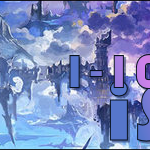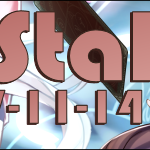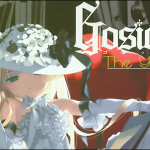The Wandering Witch Watches an Eastern Western — Garo: Vanishing Line
![WWGaroVanishingLine[1]](http://918thefan.com/wp-content/uploads/2017/12/WWGaroVanishingLine1-300x164.png)
Welcome, all, again, and a blessed Yule season! As we close both the year and viewing season, I’d like to look at what I interpret to be a Japanese attempt to make a western that consequently results in probably one of the most original shows currently offered, Garo: Vanishing Line. This, despite the fact that it falls into place within the expansive Garo franchise, which includes: films; several live-action series and TV specials; a PlayStation 2 video game; and even a previous anime series. (Not too shabby for a franchise that only began a little over a decade ago!) The premise throughout them all is that Makai knights are magic users who are individually responsible for protecting certain assigned areas from the demonic activites of Horrors, evil spiritual beings from the netherworld who possess humans and amplify human darkness. The possessed victims usually undergo dramatic bodily metamorphoses and begin to take their sustenance from cannibalism, devouring other people. Because of these facts, destroying a Horror necessitates killing its possessed victim/host. Makai knights are governed and controlled by the Makai Order, a secretive, quasi-religious organization. The knights are also assisted by Makai alchemists and Makai priests, although some sources indicate that the these two roles might be interchangeable. Another asset available to [at least some of] the knights is a type of sentient magical tool collectively called madogu; these are normally small, intimate items like jewelry, crafted by Makai priests to guide and advise a knight in the fulfillment of his duties. After all, where Horrors are concerned, even a knight can never have enough help!
![gvl-ep-01[1]](http://918thefan.com/wp-content/uploads/2017/12/gvl-ep-011-300x170.jpg)
And that might be especially true of Russell City’s protector Sword, titled Garo (Fanged Wolf) the Golden Knight, an easily distracted casual womanizer who much prefers combat to cognition. Sword is a massive, heavily muscled slab of a man who greatly appreciates bloody steaks, bosomy companionship, and the stoic resistance of a well-worn punching bag; his name reflects his weapon of choice. He rides a motorcycle come straight from the cover art of a Meat Loaf album, a madogu that seems to share the sentience of a ring he wears–a consciousness called Zaruba seems to move between the two objects. Sword and Zaruba have been increasingly busy of late as Russell City finds itself targeted by Horrors. They have become so busy, in fact, that help has been assigned in the person of Luke (which name was actually supposed to have been Rook), a Makai alchemist who uses firearms, particularly favoring a matching set of pistols previously carried by his mother. Other Makai affiliates are also available to Sword, including Feilong and his granddaughter Meifang (and their employees), who operate a Chinese restaurant at which Sword lives and occasionally works, and Gina, a Makai alchemist whose assignments seem to involve frequent travel. And then there’s Sophie, a teenage girl who has foisted herself upon Sword as she searches for her missing older brother. Sword is conflicted about allowing Sophie’s involvement and wants to protect her by distancing her from Makai matters, but–having lost his own sister to a mysterious disappearance–he sympathizes with Sophie and just can’t bring himself to snatch away her slim hope. She in turn recognizes this and takes full advantage of it, although she feels guilty over abusing Sword’s kindness. But Sophie perseveres and eventually makes herself part of the team by using her internet skills to gather info and intel.
![Garo10-1[1]](http://918thefan.com/wp-content/uploads/2017/12/Garo10-11-300x169.jpg)
But let us now discuss my contention that what we actually have here is a Japanese attempt–however camouflaged–to make a western. While Russell City is quite clearly modeled upon New York City, a true bastion of east coast sensibilities, the situation playing out in this story is very much a staple of western lore. You have your virtuous if mannish sheriff standing aloof and untouchable against a veritable avalanche of lawlessness and violence, trying to tame the chaos with the help of a ragtag, often unlikely posse who gravitate to his radiant integrity almost against their collective will. It is, after all, the sheriff’s sworn duty to protect the townsfolk against the depravities and violations of the various outlaws extant, be they independent operators or part of a larger gang. And there is a robber baron figure pulling strings from the shadows, some fabled El Dorado. As I mentioned on Crunchyroll, this story reminds me of nothing so much as the mythos of the gunfight at the OK Corral. Or maybe even (more obliquely) the movie True Grit. Each is pure Americana, and a classic western construct. Indeed, this particular chapter of the Garo tale practically demanded an American setting, and I love it! I’ve already gotten so much more than I expected from this series, and can’t wait to witness its resolution. Watch and be amazed.
















iStalk? uStalk!